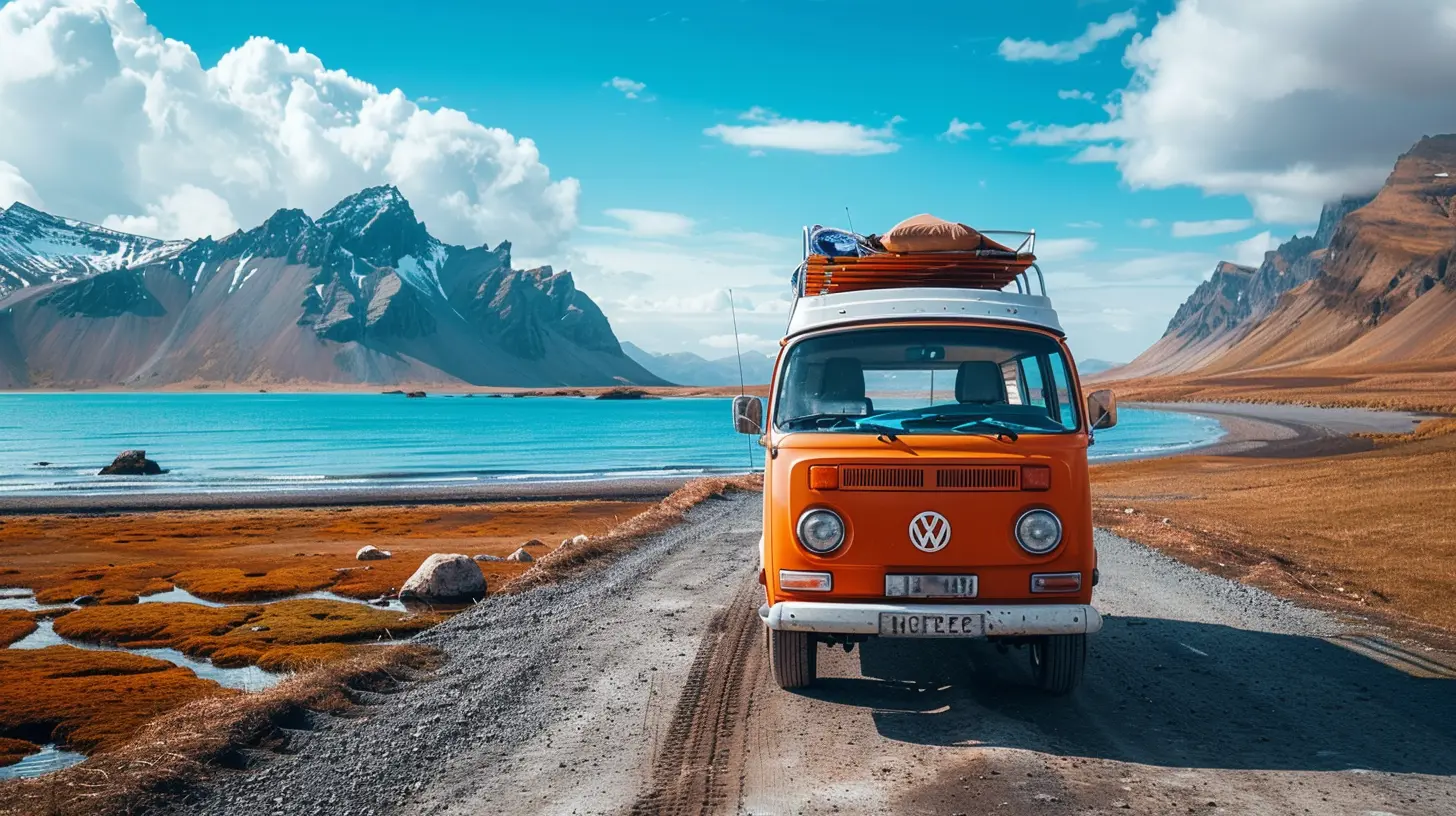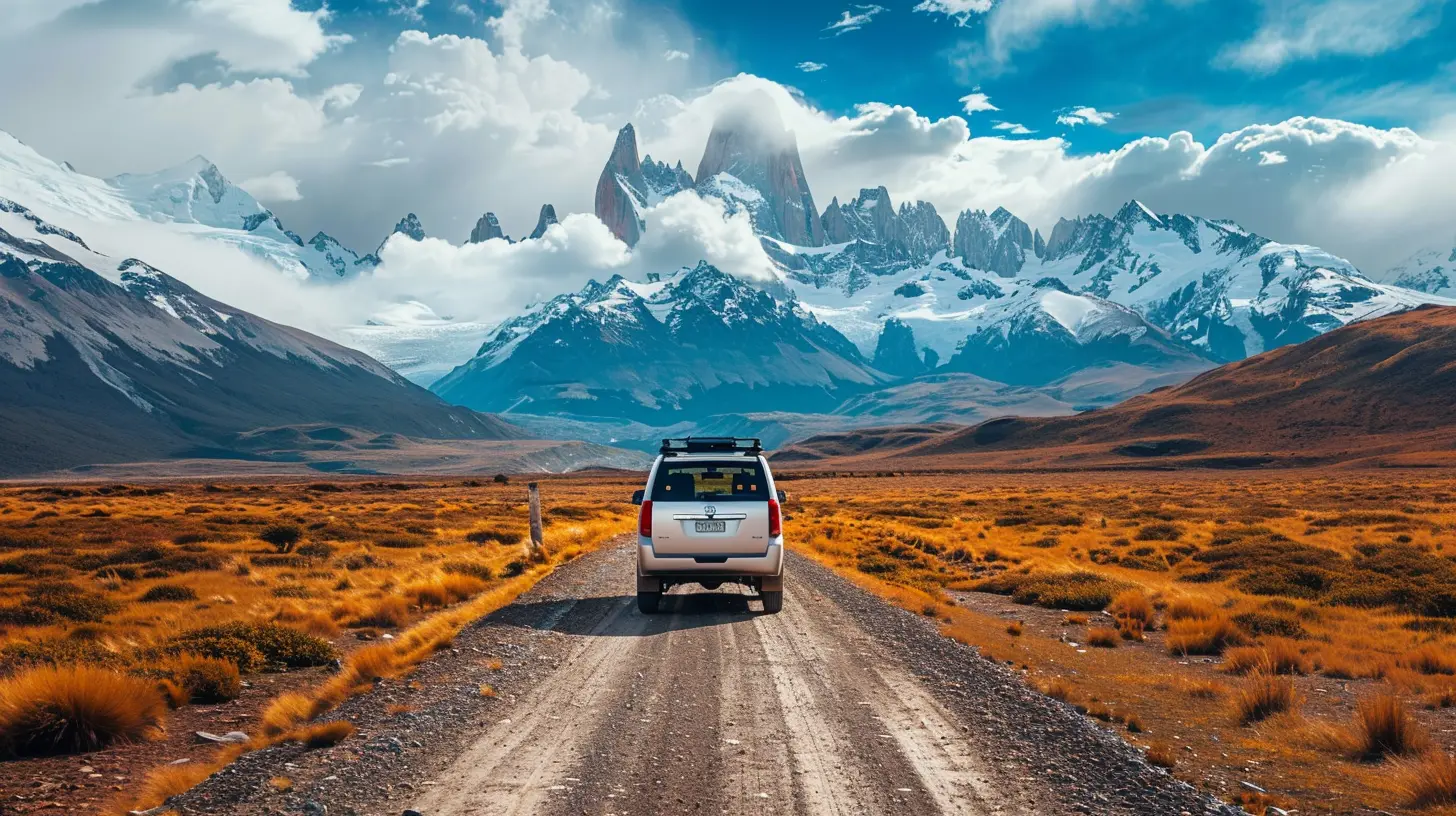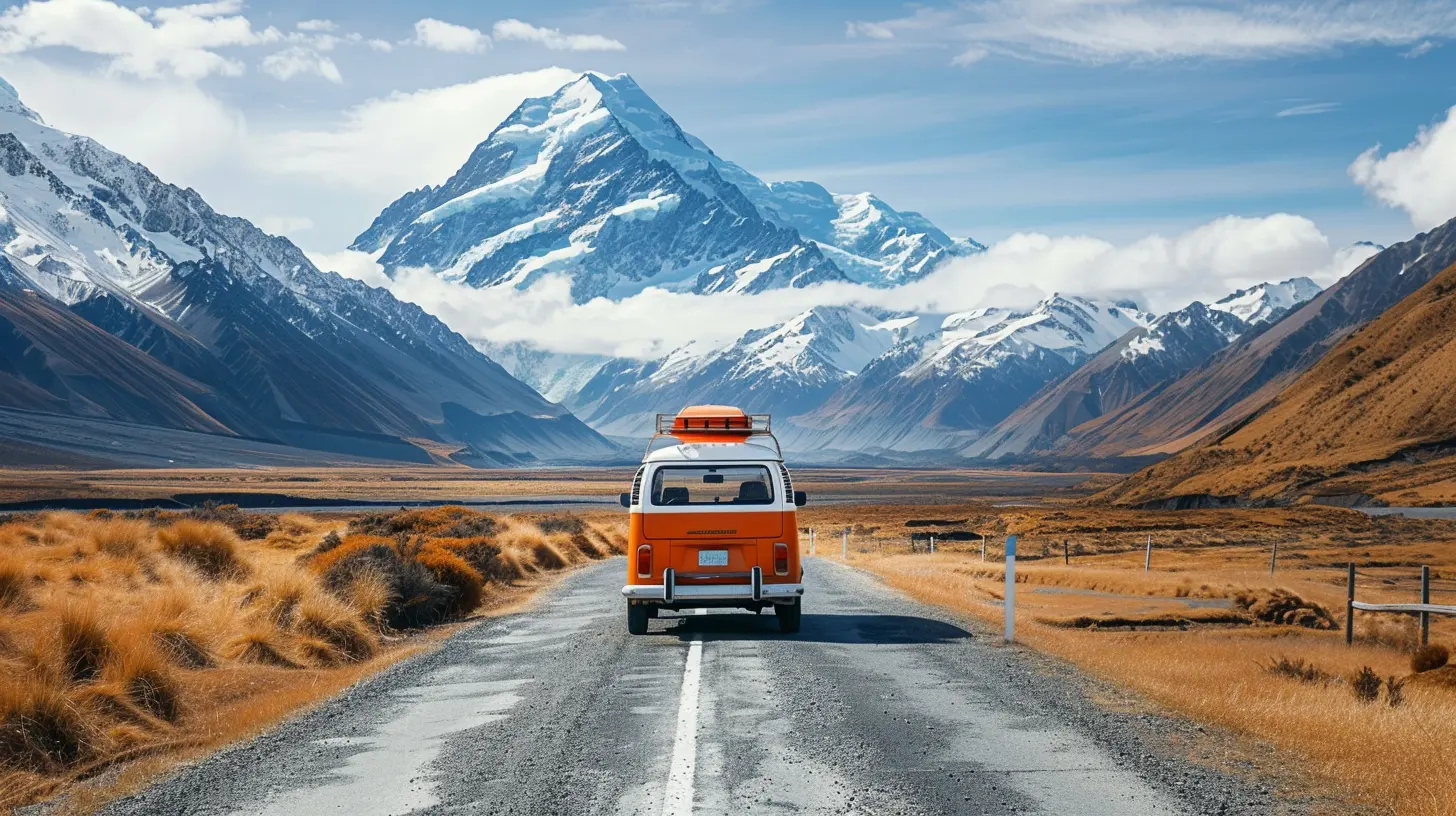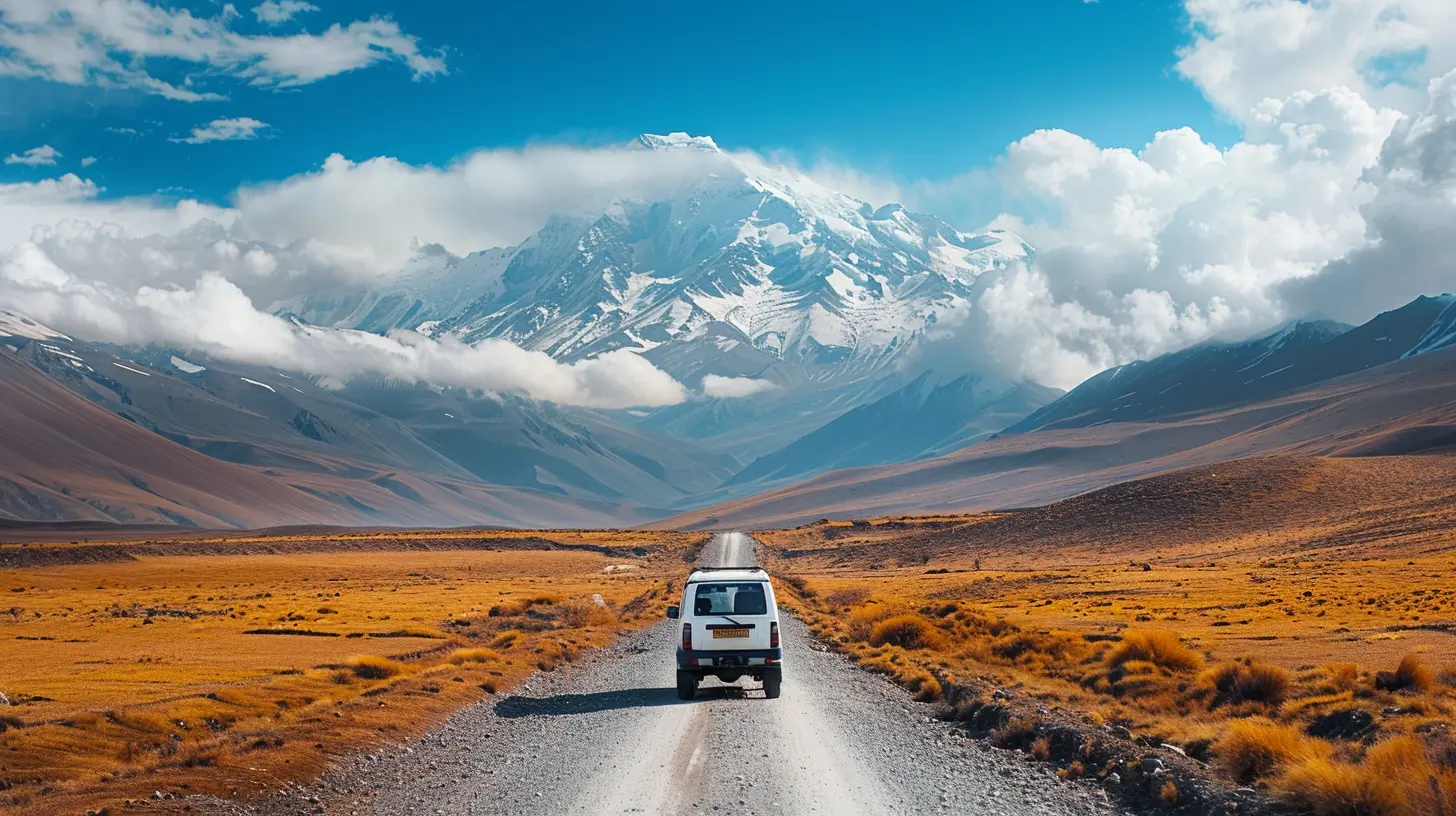Car Rentals in Remote Locations: What You Should Consider
4 October 2025
Renting a car in a remote location can be an exciting yet challenging experience. Whether you're heading off on a rugged adventure or exploring an off-the-beaten-path destination, having your own wheels can offer unparalleled freedom. But before you book that rental, there are several crucial factors to consider. From limited rental options to fuel availability and insurance concerns, this guide will help you navigate the complexities of renting a car in far-flung areas.
Let’s dive in!

Why Renting a Car in Remote Locations is Different
Renting a car in a big city or at a busy airport is pretty straightforward. You have multiple rental agencies to choose from, competitive prices, and plenty of vehicle options. But when you're in a remote area, things change drastically.- Fewer rental agencies – You may find only one or two rental providers, if any.
- Higher rental costs – With limited competition, prices can be steeper.
- Vehicle scarcity – You might not have the luxury of choosing your preferred model.
- Infrastructure challenges – Roads may be rough, fuel stations sparse, and breakdown services rare.
Given these factors, proper planning is crucial.

Key Considerations When Renting a Car in a Remote Destination

1. Availability of Rental Agencies
First things first—does the location even have a car rental service? Some remote areas may not have traditional car rental agencies at all. In such cases, you might need to rent a vehicle from a local business, a hotel, or even a private individual.A quick online search, travel forums, or reaching out to locals beforehand can save you from arriving and finding zero options.
2. The Right Vehicle for the Terrain
Not all cars are built to handle rough terrain. If your destination has dirt roads, steep hills, or river crossings, you’ll need a sturdy vehicle.- 4WD or AWD – Essential for off-road driving or mountainous regions.
- High ground clearance – Helps navigate rough roads and water crossings.
- Fuel-efficient vehicles – If gas stations are rare, fuel economy matters.
Before confirming your booking, check if the rental agency offers the kind of vehicle you need.
3. Rental Costs and Hidden Fees
Due to limited competition, car rentals in remote areas often cost more than in cities. Be sure to check:- Daily rental rates – Compare costs from different providers if possible.
- Mileage limits – Some rentals impose mileage restrictions, which can add extra fees.
- One-way rental fees – If you’re dropping the car off at a different location, expect extra charges.
- Insurance costs – Coverage may be more expensive in remote areas due to higher risk.
Always read the fine print to avoid unpleasant surprises.
4. Fuel Availability and Cost
One of the biggest challenges when driving in remote places is finding fuel. Some areas may have only one or two fuel stations, and prices tend to be higher.- Plan fuel stops – Check where the nearest fuel stations are in advance.
- Carry extra fuel – If driving long distances in isolated regions, bring a jerry can with extra gas.
- Know the vehicle’s fuel type – Ensure you get the right fuel, as some remote areas may stock only limited options.
Running out of fuel in the middle of nowhere? That’s the kind of adventure you don’t want.
5. Insurance and Liability
Car rental insurance is often a headache, but in remote areas, it’s even more important. Standard rental insurance may not cover off-road driving, so check the policy carefully.- Collision Damage Waiver (CDW) – Covers damage to the rental vehicle, but may exclude off-road mishaps.
- Liability insurance – Protects you if you cause damage or injuries to others.
- Roadside assistance – Essential in case of breakdowns, but not always available in remote areas.
If the rental agency doesn’t offer sufficient coverage, consider third-party insurance providers for additional protection.
6. Breakdown Assistance and Emergency Preparedness
Breakdowns in remote areas can be a nightmare. Before renting, ask about the rental agency’s roadside assistance policy. Some companies do not offer recovery in remote locations, leaving you to fend for yourself.Here’s what you can do to stay prepared:
- Carry a spare tire and basic tools – Flat tires are common on rough roads.
- Have an emergency kit – Include water, food, a flashlight, and a first-aid kit.
- Download offline maps – GPS might not work in isolated areas.
- Know emergency contacts – Have local emergency numbers saved.
Being prepared can make a huge difference when things go south.
7. Local Driving Laws and Regulations
Different countries (and even regions within countries) have unique driving laws. Some require special permits, while others have strict speed limits or unusual road signs.- International Driving Permit (IDP) – Some remote areas may require one, even if your home-country license is valid elsewhere.
- Road rules – Do they drive on the left or right? Are seat belts mandatory?
- Wildlife crossings – In very remote regions, animals on the road are a common hazard.
Ignoring local laws can result in hefty fines—or worse, getting stranded without help.
8. Connectivity and Communication Challenges
Many remote areas have limited or no mobile phone coverage. This can be a serious issue if you need help or directions.- Satellite phone – Consider renting one if you’re heading into extreme isolation.
- Offline navigation apps – Google Maps, Maps.me, or GPS devices can be lifesavers.
- Notify someone of your travel plans – Let a friend or family member know your route and expected return time.
A little extra planning can keep minor inconveniences from turning into major problems.
9. Returning the Rental Car
At the end of your trip, returning a car in a remote location can be tricky. Some agencies charge hefty fees for returning the vehicle outside their designated locations.- Check return locations – Are they convenient, or will you have to drive far?
- Inspect the car before returning – Take photos to avoid false damage claims.
- Refuel before returning – Some agencies charge much higher rates if they have to refuel the car themselves.
Leaving this to the last minute could mean unnecessary extra costs.

Final Thoughts
Renting a car in remote locations can open up incredible travel opportunities, offering you the freedom to explore untouched landscapes at your own pace. However, it comes with its challenges. Choosing the right vehicle, understanding insurance options, and planning for fuel and emergencies can turn a potential nightmare into a smooth adventure.So, before you book that rental, take the time to research, prepare, and most importantly—enjoy the journey. After all, the best adventures often begin where the roads end!
all images in this post were generated using AI tools
Category:
Car RentalsAuthor:

Kelly Hall
Discussion
rate this article
1 comments
Kassidy Gilbert
In remote realms where wanderlust stirs, A rental car, your gateway to whispers of nature. Consider the roads less traveled, the wild's embrace— Adventure awaits, but plan with grace. Explore the unseen, let your spirit race.
October 8, 2025 at 3:07 PM

Kelly Hall
Thank you for capturing the essence of adventure! Your poetic take beautifully highlights the importance of thoughtful planning when exploring remote locations.


